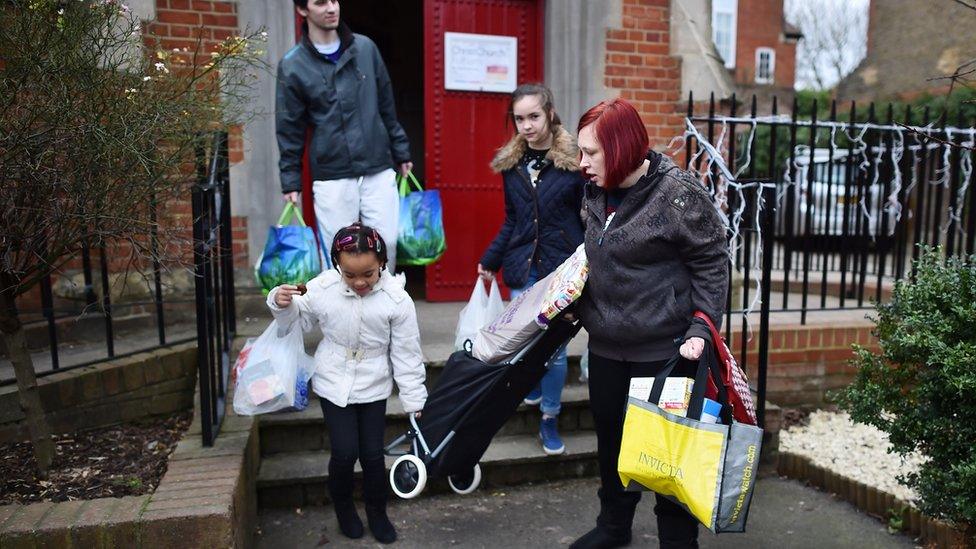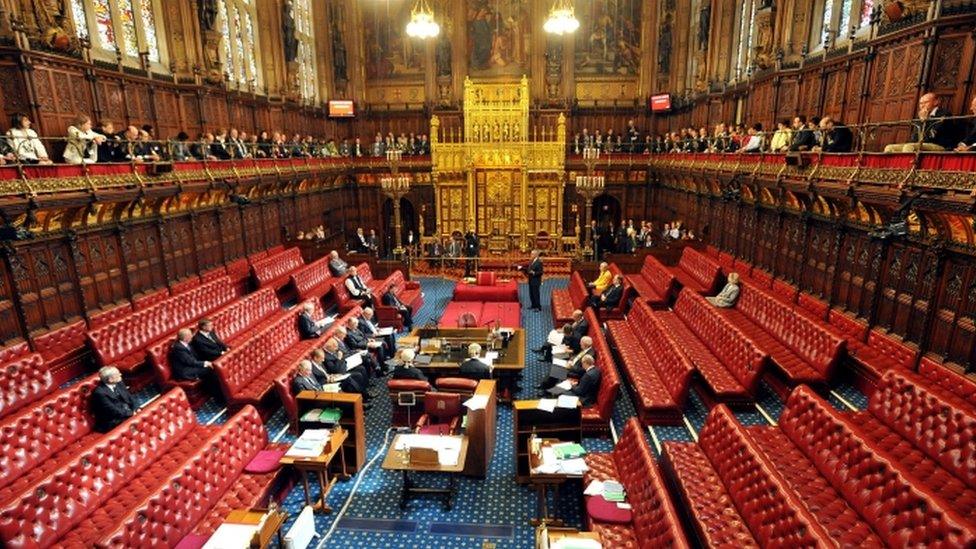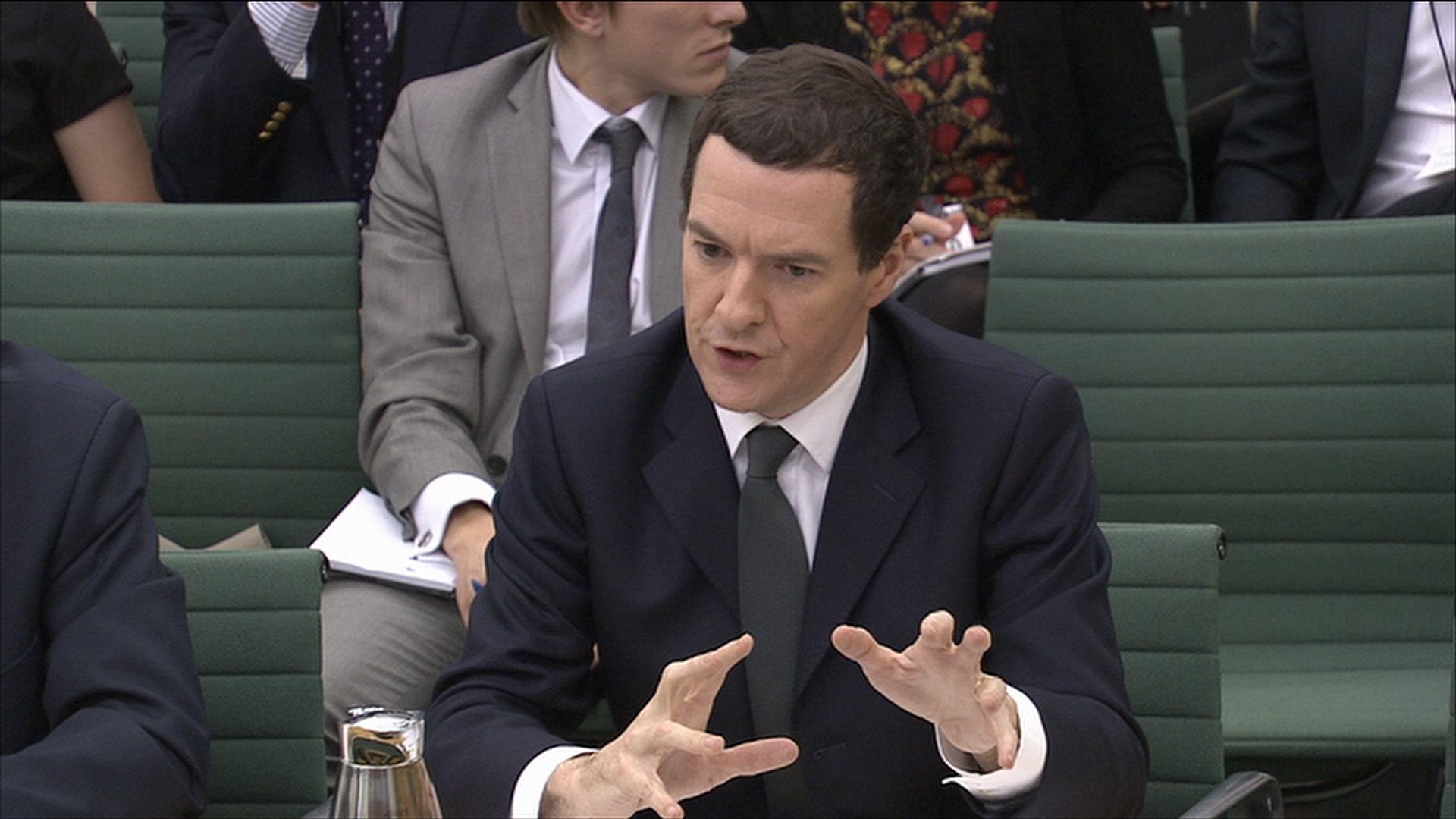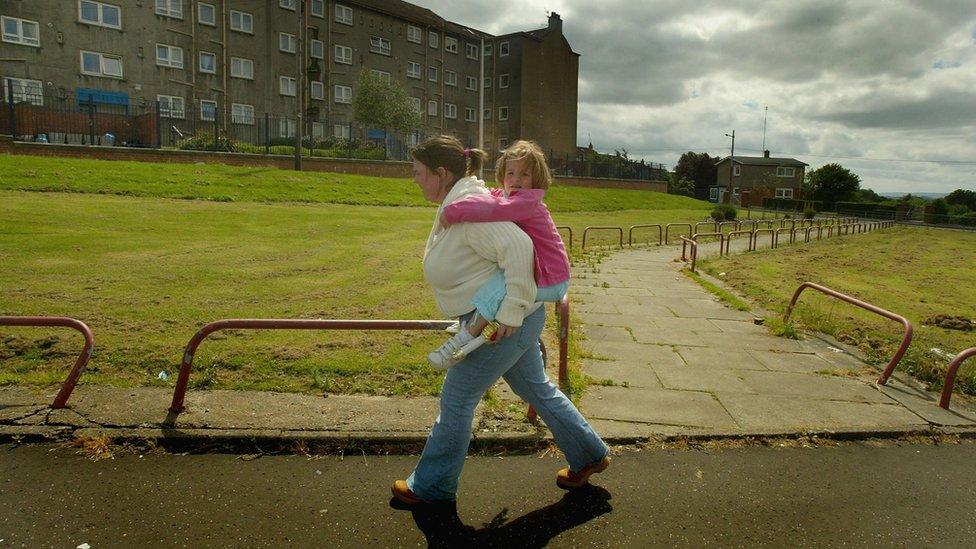Tax credits: Opponents can win vote killing off plans says peer
- Published

About 4.5 million people are eligible to claim tax credits
Opponents of tax credits cuts will "probably" win a vote in the House of Lords killing off the changes, a leading Liberal Democrat peer has said.
Lib Dem peers have tabled a so-called "fatal motion" which, if passed, would mean the changes could not proceed.
Chief Whip Lord Newby defended the rare move, saying ministers were pushing through the policy "without debate".
But former cabinet secretary Lord Butler has warned the Lords "not to get too big for its boots".
David Cameron has warned the House of Lords, in which the government does not have a majority, against blocking the changes and questioned their authority to do so.
'Schoolboy bully'
Opponents say three million working families on low incomes face losing an average of £1,000 when the changes come into effect in April although ministers argue that with increases to the personal tax allowance, the national living wage and an extension of subsidised childcare, the majority will ultimately be better off.
Two separate motions have been tabled in the Lords by critics of the tax credit cuts. Of these, the Lib Dem motion under the name of Baroness Manzoor "declining to approve" the changes is the one that would kill them off outright.

What are tax credits and what are the changes?
Tax credits are a series of benefits introduced by the last Labour government to help low-paid families. There are two types: Working Tax Credit (WTC) for those in work, and Child Tax Credit (CTC) for those with children.
Under government proposals, the income threshold for Working Tax Credits - £6,420 - will be cut to £3,850 a year. In other words, as soon as someone earns £3,850, they will see their payments reduced. The income threshold for those only claiming CTCs will be cut from £16,105 to £12,125.
The rate at which those payments are cut is also going to get faster. Currently, for every £1 claimants earn above the threshold, they lose 41p. This is known as the taper rate. But from April, the taper rate will accelerate to 48p. So for every pound earned above the threshold, claimants will lose 48p.
There will be similar reductions for those who claim work allowances under the new Universal Credit.

A separate Labour motion, under the name of Baroness Hollis, would ensure a pause while the government takes into account an independent impact analysis and would postpone the changes until transitional measures were put in place to protect affected claimants.
Crossbench peer Baroness Meecher, who had previously tabled her own motion urging a delay, has now agreed to incorporate hers into the Labour one, the opposition said.
Lord Newby said that, in view of the "rapidly growing opposition" to the cuts, the government should think again from scratch.
The fact the government was introducing the changes via statutory instrument rather than primary legislation was an "unprecedented step to push something through without debate", he told Radio 4's Today programme.
David Cameron, he suggested, was behaving "like a schoolboy bully" with his warnings to the Lords of what might happen if it did block the measure.
The prime minister has urged the Lords to focus on its role as a revising chamber, saying it does not have the constitutional authority to reject finance measures.
There have been reports that, if they lose the tax credit vote, the Conservatives could "flood" the Upper House with new peers in order to establish a working majority for its legislative programme.
Lords vs Commons
Lord Butler, a former head of the civil service who is now a crossbench peer, told Today it would be "quite wrong" for the Lords to overturn or obstruct a measure which had already been passed by the Commons.
He said the cuts to tax credits were a central plank of the cuts to welfare on which the government was elected and if the Lords did block it would be "getting too big for its non elected boots."

The vote could put the House of Lords on a collision course with the House of Commons
The government is seeking to introduce the cuts not though the traditional route of a Finance Bill, which the Lords do not historically have the power to oppose, but via so-called secondary legislation - which peers say they are entitled to challenge.
However, the BBC's deputy political editor James Landale said the records showed that there have only been five occasions since World War Two that peers have blocked secondary legislation.
Conservative MP Jacob Rees-Mogg said the elected House's supremacy over tax and spending matters dated back to the 15th Century and the largely appointed Lords would face repercussions if it defied that.
"I think the prime minister would be entitled to ask the Queen to appoint a large number of peers if the Lords blocks something which belongs to the privilege of the House of Commons," he told the Daily Politics.
"The privilege that all matters of taxation and expenditure are reserved to the Commons, even secondary legislation, is of the greatest antiquity....The House of Commons have exclusive competence over taxation and expenditure regardless of the form it is presented to the Lords."
The government would need to appoint 150 or more peers to achieve a Lords majority. Mr Rees-Mogg said he would back such a move but it would "bring the House of Lords into disrepute" and trigger reform.
A Downing Street spokesman said there was "no plan" to engage in Lords reform but the PM's view was that the Lords should take note of votes in the Commons, which has twice backed the changes in the past six weeks.
- Published22 October 2015

- Published21 October 2015
- Published24 November 2015
